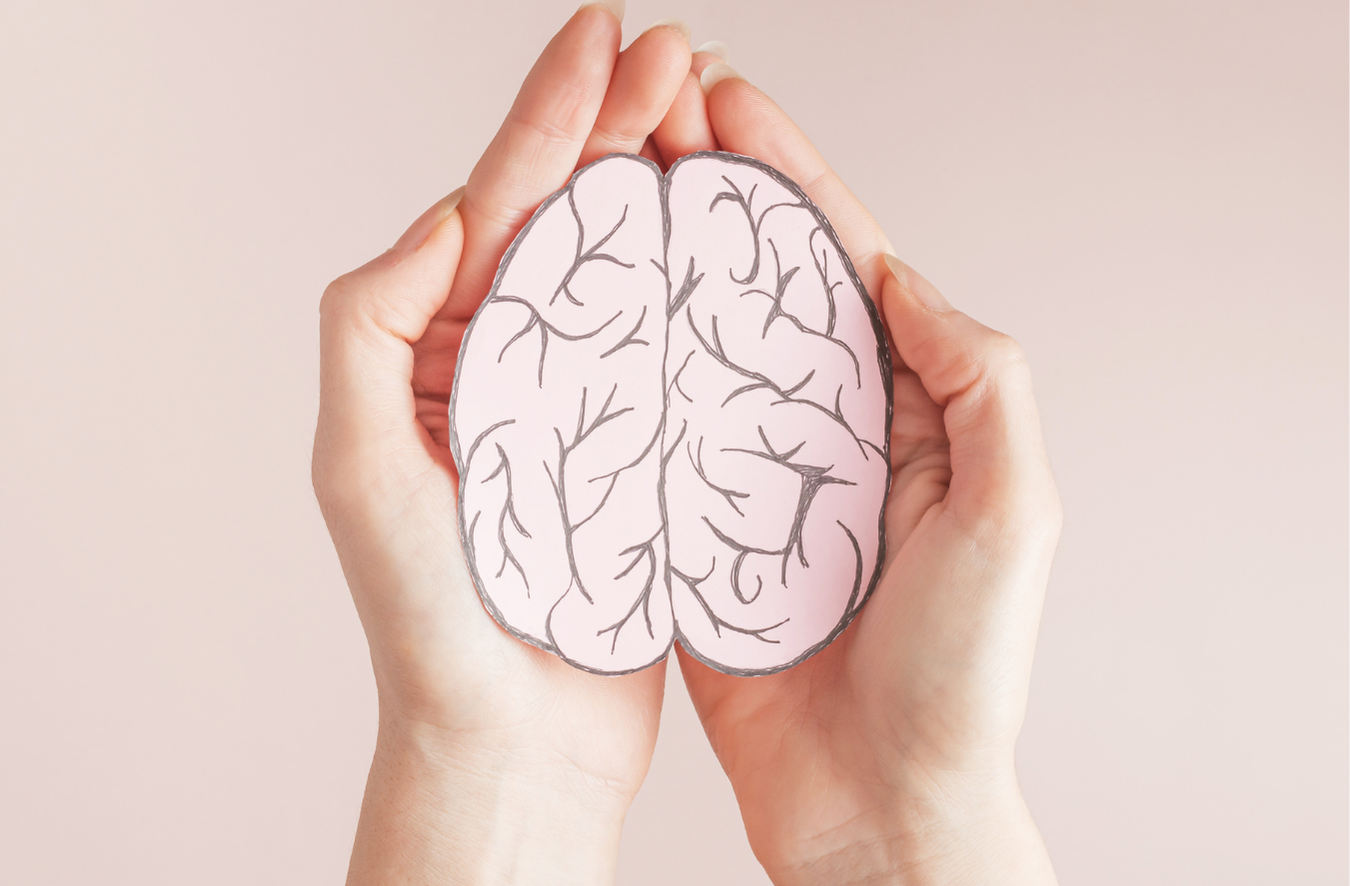Warning Signs of a Mental Health Crisis and How You Can Get Help
In Texas, suicide remains one of the leading causes of death among youth, alongside drug overdose and accidental injuries, according to data from the Centers for Disease Control and Prevention (CDC).
While mental illness can affect anyone, a mental health crisis is a specific and urgent situation that requires immediate attention. In this blog, we aim to help you understand the warning signs of a mental health crisis and guide you to resources available in Austin that can offer timely and effective help.
What Is a Mental Health Crisis?
A mental health crisis happens when a person’s actions or state of mind pose a danger to themselves or others, or when they are unable to care for themselves or function in daily life.
While ongoing mental health challenges, such as depression or anxiety, can persist over time and often require long-term treatment, a mental health crisis represents a sudden and severe escalation of symptoms. It demands immediate attention and may need emergency intervention.
The Texas State Plan for Suicide Prevention emphasizes that early intervention during these moments is critical to reducing harm and saving lives. It also highlights that crises may not always be easily visible and can take different forms across individuals, communities, and age groups.
The Cleveland Clinic describes one form of crisis, often referred to as a “nervous breakdown,” as a period when an individual becomes temporarily unable to function due to overwhelming stress or emotional distress. While not a medical diagnosis, it can include signs such as:
- Difficulty performing daily tasks
- Sudden withdrawal from others
- Extreme mood swings or panic attacks
- Inability to concentrate
- Feeling emotionally overwhelmed or out of control
These episodes may signal an underlying mental health condition, but are primarily characterized by their urgency and disruption of everyday life. Recognizing them as crisis points can be a crucial step in getting the right kind of help.
Common Warning Signs of a Mental Health Crisis
Identifying the indicators of a mental health crisis can help prevent severe outcomes. While symptoms vary across individuals, specific patterns are common in the lead-up to or during a crisis. These signs often involve noticeable changes in behavior, mood, thinking, or physical health and can appear suddenly or intensify over time.
1. Talking About Suicide or Self-Harm
One of the most critical warning signs is when someone says they want to die or mentions feeling like a burden. Statements such as “I can’t go on” or “Everyone would be better off without me” should be taken seriously.
In some cases, individuals may begin seeking out methods to harm themselves, such as researching weapons or medications. These behaviors indicate an urgent crisis and require immediate attention.
2. Extreme Mood or Behavior Changes
Sudden and intense changes in emotional state can signal a mental health crisis. A person may quickly shift from feeling calm to angry, or from withdrawn to unusually energetic, without any clear cause. Some may become visibly agitated or display uncharacteristic aggression, while others might seem emotionally flat or disconnected. These fluctuations may feel unpredictable or confusing to those around them.
3. Withdrawal or Isolation
Someone experiencing a mental health crisis may begin pulling away from friends, family, and social activities. They might cancel plans, avoid communication, or seem uninterested in previously enjoyable activities. Long periods of time spent alone, especially when uncharacteristic, can signal emotional distress and a possible worsening of mental health.
4. Loss of Daily Functioning
A person may find it challenging to carry out everyday responsibilities such as getting out of bed, preparing meals, attending work or school, or maintaining personal hygiene. They might miss appointments or deadlines, or seem generally disengaged from routine tasks. In some cases, their ability to function may decline so significantly that basic self-care becomes unmanageable.
5. Delusions, Hallucinations, or Disorientation
Some individuals may begin seeing or hearing things that aren’t there (hallucinations), or hold firm beliefs that are clearly untrue or paranoid in nature (delusions). They might appear confused, unable to focus, or speak in a way that doesn’t make sense. These symptoms may indicate a loss of connection with reality, often referred to as psychosis, and typically require urgent mental health evaluation.
6. Substance Abuse or Risky Behavior
A noticeable increase in alcohol or drug use can be a sign of self-medicating during emotional distress. Others may engage in risky behaviors, such as unsafe sex, reckless driving, or impulsive spending, without considering the potential consequences. These actions may indicate a lack of control or disregard for personal safety, which can escalate during a crisis.
7. Changes in Sleep or Eating Patterns
A person may sleep far more than usual or experience severe insomnia. Likewise, eating habits may shift drastically, leading to significant weight loss or gain. These changes often go hand-in-hand with feelings of restlessness, fatigue, or a general lack of energy and can be early signs of emotional overload or depression.
8. Statements of Hopelessness or Worthlessness
When someone frequently expresses feelings of hopelessness, such as saying “What’s the point?” or “Nothing will ever get better,” it’s important to take those words seriously. They may also show signs of intense guilt, self-blame, or say they feel like a burden. Persistent low self-esteem and self-criticism are often linked to depressive episodes or crisis states.
9. Physical Complaints With No Clear Cause
Mental distress can often show up in the body. Someone in crisis may frequently complain of headaches, stomachaches, or other physical symptoms without a clear medical explanation. These are especially common in children and teens, who may have difficulty expressing emotional struggles directly.
10. Giving Away Belongings or Saying Goodbye
In some cases, a person preparing for suicide may begin giving away personal items, writing a will, or making final arrangements. They might say goodbye to others in a way that feels unusually formal or final. Concerning posts on social media or private messages can also signal intent. These are serious red flags that immediate support is needed.
When to Take Action
It’s important to remember that even just one or two of these signs, especially if they are new, intense, or worsening, can signal a potential mental health crisis. If someone is expressing suicidal thoughts, showing signs of disorientation or psychosis, or appears unable to care for themselves, the safest response is to seek help right away.
What to Do If You or Someone You Know Is in Crisis
The first thing that needs to be done is to recognize the signs of a mental health crisis, but knowing how to respond is just as important. If you or someone you care about is experiencing a mental health emergency, acting quickly and appropriately can save a life.
If There Is Immediate Danger
When someone is immediately likely to hurt themselves or others, call 911 or take the person to the nearest emergency room. When you need to call 911 for a mental health emergency in Austin, be sure to clearly request a Mental Health Officer or Crisis Intervention Team (CIT), which are trained in handling mental health emergencies.
You can also contact Integral Care, Austin’s local mental health authority, at 512-472-HELP (4357). Their 24/7 helpline offers immediate support and can dispatch Mobile Crisis Outreach Teams to your location when necessary.
If the Situation Is Serious But Not Life-Threatening
Not all crises involve immediate risk, but that doesn’t mean they should be ignored. If you’re unsure what to do, you can:
- Reach out to a direct primary care, school counselor, or trusted family member to begin the process of support.
- Encourage the person to speak with a mental health provider or schedule an urgent same-day appointment, if available.
What to Say (and What Not to Say)
When speaking with someone in crisis, stay calm, listen closely, and avoid judgment. You can say:
- “You’re not alone. I’m here for you.”
- “I’ve noticed you haven’t seemed like yourself lately. Do you want to talk?”
- “It’s okay to ask for help; there are people who can support you.”
Avoid saying things like:
- “Just get over it.”
- “You have so much to be happy about.”
- “Other people have it worse.”
These responses may minimize their pain and make them feel even more isolated.
Don’t Leave the Person Alone
If you believe someone is in immediate danger, stay with them or make sure they are not alone until help arrives. Take away anything they could use to hurt themselves, like guns, sharp items, or medicines, if it is safe for you to do so.
Local Support and Inpatient Care
Austin State Hospital (ASH) is one of the city’s key mental health facilities for those needing structured, short-term inpatient psychiatric care. Our goal is to stabilize individuals in crisis and support a safe return to community-based care.
Located at 4110 Guadalupe St., Austin State Hospital has served as a cornerstone of mental health care in Texas for over a century.
Consider Crisis Planning for the Future
Individuals who have recurrent mental health crises may find it helpful to make a crisis plan with their care team. The strategy should include recommended contacts, medications, early warning signs, and what to do in a crisis.
Conclusion: Support a Loved One in Crisis
Anyone can have a mental health crisis at any time, in any community, and it’s not always easy to recognize at first. But no one should have to face it alone.
Knowing the warning signs, acting quickly, and connecting with trusted local resources can make a life-saving difference. Even just checking in with someone, offering to call a helpline with them, or staying present during a tough moment can be the first step toward recovery.
If you or someone you know is in crisis, here are key resources in Austin, TX, and nationwide:
- Integral Care 24/7 Helpline (Austin): 512-472-HELP (4357)
For immediate mental health support and mobile crisis outreach. - Austin State Hospital:
Short-term, inpatient psychiatric services for children, adolescents, and adults. - National Suicide & Crisis Lifeline: Call or text
988
Free, confidential support 24/7 across the U.S. - Crisis Text Line: Text
HELLO to
741741
Text-based support for any mental health concern, any time.
In addition to hospitals and hotlines, community organizations in Austin also provide essential mental health services, peer support, therapy, and crisis intervention. Many work directly with underserved populations, youth, veterans, LGBTQ+ individuals, and families in crisis.
If you found this information helpful, please share this blog with others or bookmark it for future reference. You never know when it might help someone take that first step toward getting the care they need.
Stay Connected
Mental health education and support doesn’t stop here. We regularly share helpful tips, local resources, and upcoming events focused on community well-being and crisis prevention.
Follow us on Facebook and Instagram for more updates and mental health awareness content.
You can also check out our upcoming events and initiatives to support mental health advocacy in Austin on our
website. Whether you're looking for support, want to volunteer, or stay informed, we're here for you, and we're glad you're here.











